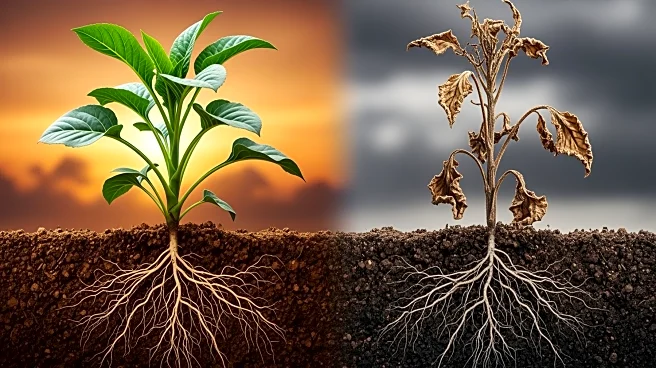What's Happening?
A study published in Nature reveals that continuous cropping of Curcuma Kwangsiensis significantly alters soil microbial communities and properties, leading to reduced crop yield. The research indicates
that extended cropping intensifies soil acidification and disrupts microbial diversity, affecting nutrient turnover and ecosystem processes. The study highlights the complex interactions between soil properties and microbial communities, emphasizing the challenges of maintaining soil health under continuous agricultural practices.
Why It's Important?
The findings underscore the importance of sustainable agricultural practices to preserve soil health and productivity. Continuous cropping can lead to long-term soil degradation, impacting food security and agricultural sustainability. Understanding the effects of cropping on soil ecosystems is crucial for developing strategies to mitigate negative impacts and enhance crop yields. The research contributes to broader discussions on sustainable farming and environmental conservation.
What's Next?
Further research is needed to explore alternative cropping systems and soil management practices that can improve soil health and productivity. Scientists may investigate the role of specific microbial communities in enhancing nutrient cycling and plant growth, potentially leading to innovative agricultural solutions. Collaboration with farmers and policymakers will be essential to implement sustainable practices and address the challenges of soil degradation.
Beyond the Headlines
The study raises awareness about the environmental impact of agricultural practices, highlighting the need for integrated approaches to soil management. It emphasizes the importance of preserving biodiversity and ecosystem services in agricultural landscapes.










